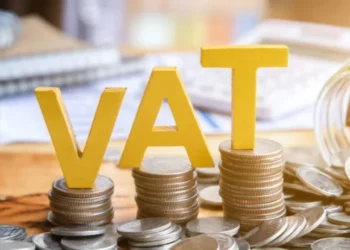The Nigerian Association of Energy Economics(NAEE), has called for sustainable investments in all energy infrastructures describing the step as imperative for the emergence of a strong energy sector.
The association urged the Federal Government to work towards increased utilisation of natural gas in order to alleviate the suffering of Nigerians, noting that Nigeria is blessed with abundant reserves of gas, which is cleaner and cheaper than petrol.
In the communiqué issued after its 16th Annual International Conference in Abuja, with the theme: “Energy Evolution, Transition and Reform: Prospects for African Economies” , the Association stated: “NAEE believes that the current huge burden of subsidy removal on Nigerians can be alleviated by the rapid expansion of measures to speed up the utilisation of natural gas as a substitute for premium motor spirits (PMS).
These include promoting the activities of the Natural Gas Expansion Programme, the conversion of engines to run on compressed natural gas (CNG), and the speedy deployment of CNG stations all around the country.
“The present crushing effects of the removal of PMS subsidy need to be alleviated through measures such as mass transportation programmes and others that are directly targeted at most of the affected Nigerians.
“The long-overdue rehabilitation of existing refineries remains a necessity, to promote diversification and guard against monopoly power, noted conference participants.
It stated: “In the light of decreased global funding for hydrocarbon activities worldwide, Africa needs to realise that funding for the development of its non-renewable energy resources needs to come from Africa. Therefore participants welcomed the initiative between Africa Petroleum Producers Organization (APPO) and the Afrexim Bank to establish the African Energy Bank, which shall provide funds for oil, natural gas, and other energy projects, and NAEE looks forward to its imminent creation.
“The participants agreed that there is an urgent need to implement Nigeria’s chosen path for energy transition, particularly as domestic natural gas consumption expands and becomes an integral part of the energy mix in the transitioning path to Nigeria’s carbon neutral future.
“Delays could negatively impact on Nigeria’s economic development. Participants recognised that the Nigerian oil and gas sector had a pivotal role to play in achieving Nigeria’s Energy Transition Plan, and that partnership with the renewable energy sector to jointly drive implementation, will help ensure its success.
“Participants acknowledged and emphasised the need for a functional electricity sector with sustainable, available, and affordable electricity supply, stressing that development and true industrialisation without regular electricity is a mirage.
“Political stability is essential, as are the continuity of government reform and development programmes, which prioritise economic prosperity and the need for meaningful sustainable economic and national developm łent.
“Participants hailed the passage and ongoing implementation of the Petroleum Industry Act, noting that continuous growth, strengthening, enablement and stability of the Nigerian Upstream Petroleum Regulatory Commission (the Commission) and the Nigerian Midstream and Downstream Petroleum Regulatory Authority (the Authority) are vital to the growth of Nigeria’s energy sector.
“Nigeria needs to scale up the utilisation of her substantial natural gas resources for the development of her people; therefore participants recommended the speedy implementation of the provisions in the Petroleum Industry Act that establish the framework for natural gas utilisation, and where needed, any amendments to the law that will create an attractive investment climate.
“The hopes of the rural energy poor lie in the use of off gird renewable energy sources; therefore, NAEE lauds the initiatives of the Nigerian government to electrify communities outside the electricity grid network through the Rural Electrification Agency.
“NAEE recommends these and other similar initiatives as measures that will both alleviate the poverty of its citizens while counterbalancing any current and anticipated increased use of natural gas resources, hereby working towards the attainment of carbon neutrality and net zero.”




